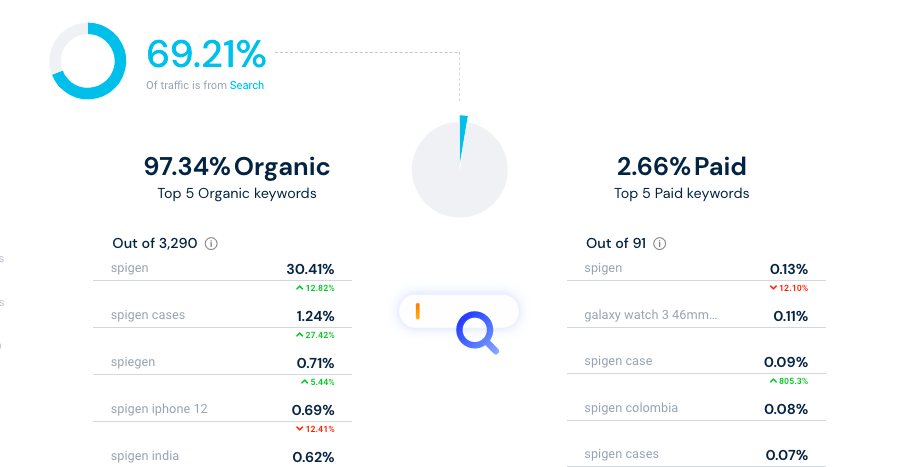Ecommerce marketing can be a tough nut to crack. You have to make sure that your website is designed in a way that is easy for customers to navigate, while also ensuring that your products are well-represented and easily searchable. Additionally, you need to create compelling content and offers that will drive traffic to your site and convert visitors into customers.
There are a number of different marketing channels that you can use to promote your ecommerce business, and the best way to approach your marketing will vary depending on your products, your target audience, and your budget. But regardless of which channels you choose to focus on, there are some basic principles that all effective ecommerce marketing campaigns should follow.
If you can master these four basics, you’ll be well on your way to success with your ecommerce marketing efforts. Let’s take a closer look at each of these four pillars.
4 Basic Principles All Effective eCommerce Marketing Campaigns Should Follow
1. Start with a Solid Foundation

The first step to successful ecommerce marketing is to make sure that your website is set up for success. This means having a well-designed site that is easy to navigate and search. Your products should be well-represented, and customers should be able to easily find the information they need. Additionally, your site should be optimized for conversion, so that once a visitor is on your site, you have a good chance of converting them into a customer.
2. Drive Traffic to Your Site

Once you have a solid foundation in place, it’s time to start driving traffic to your site. There are a number of different ways to do this, and the best approach will vary depending on your products, your target audience, and your budget. But some of the most effective traffic-driving tactics include search engine optimization (SEO), pay-per-click (PPC) advertising, social media marketing, and content marketing.
3. Convert Visitors into Customers

Once you’ve driven traffic to your site, the next step is to convert those visitors into customers. Again, there are a number of different ways to do this, but some of the most effective tactics include creating compelling content, offering discounts and coupons, and making it easy for customers to purchase your products.
4. Keep Your Customers Coming Back for More

The final step in successful ecommerce marketing is to keep your customers coming back for more. This can be done by offering new products, providing excellent customer service, and creating loyalty programs that incentivize customers to keep doing business with you.
Aside from these four basic principles, all effective ecommerce marketing campaigns should follow, it is also important to know the different types of ecommerce marketing.
Different Types of eCommerce Marketing
There are many types of ecommerce marketing, but some of the most common and effective channels include social media marketing and content marketing.
1. Social Media Marketing

Social media marketing involves creating and sharing content on social media platforms like Facebook, Twitter, and Instagram to promote and sell products or services. This can help to promote your products or services and build brand awareness. This is done through creating and sharing content, running ads, or holding events and promotions.
2. Content Marketing
Content marketing involves creating and sharing helpful and informative content, such as blog posts, infographics, and ebooks. It involves creating and distributing valuable content to attract and retain customers.
Both social media marketing and content marketing can be extremely effective in driving traffic and sales for an online store. However, it’s important to choose the right strategy for your business and to ensure that your marketing efforts are aligned with your overall business goals.
3. Affiliate Marketing
Affiliate marketing is a type of performance-based marketing, where you pay affiliates (other websites or bloggers) a commission for every sale or lead they generate for your business. It can be an effective way to reach new customers, and to get your products and services in front of a wider audience.
4. Email Marketing
Email marketing involves sending out regular newsletters or promotional emails to your subscribers, with the aim of fostering customer loyalty and driving sales. To be successful with email marketing, you need to have a large and engaged list of subscribers, as well as high-quality content that will interest and engage them.
5. Pay-Per-Click (PPC) Advertising
PPC is a type of online advertising where you pay a fee every time someone clicks on your ad. It can be an effective way to drive traffic to your website and generate leads, but it’s important to ensure that your ads are relevant and targeted to your target audience, so that you don’t waste money on clicks from people who are not interested in your products or services.
6. Search Engine Optimization (SEO)
This type of ecommerce marketing focuses on making sure your website appears as high as possible in search engine results pages (SERPs), so that potential customers can find you more easily. To do this, you need to make sure your website is optimized for the right keywords and phrases, and that it has high-quality content that will engage and convert visitors.
7. Google AdWords and other paid advertising
Google AdWords and other forms of paid advertising can be an effective way to reach your target audience and promote your products or services. Paid ads allow you to specifically target your audience with laser-precision, and they can be a great way to generate immediate results.
There you have the different types of ecommerce marketing you can use to reach your target market. There are also many different aspects of ecommerce marketing so it is important to choose the right strategy for your business. You need to consider your target audience, your budget, and your goals. You also need to be aware of the different channels that you can use to reach your target market.
Conclusion
Ecommerce marketing is important to any business because it can help promote your products or services online and reach a wider audience. It can also help you build brand awareness and create an online presence for your business. With the right strategy and knowledge about how ecommerce works, anyone can succeed in this endeavor.






